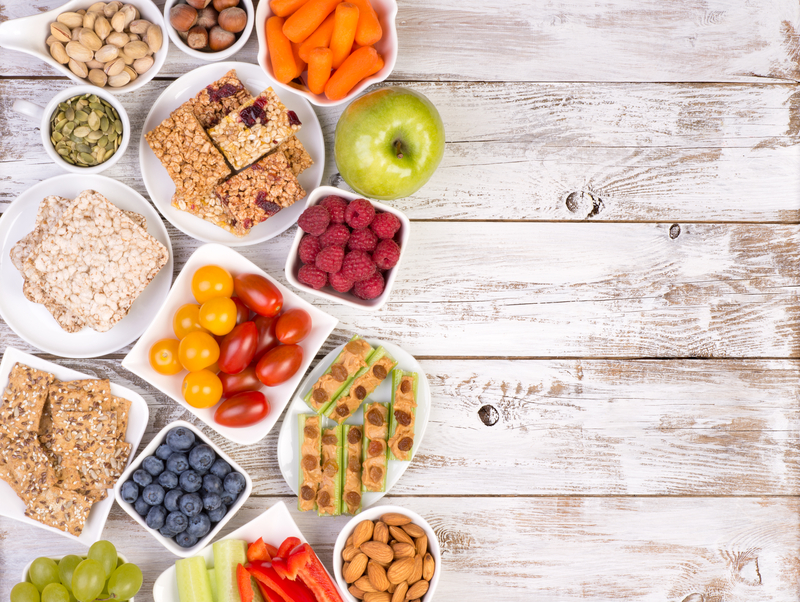Snacking refers to the foods you eat during the day other than your main meals. Most of us snack to satisfy a craving, fend off hunger pangs or for no reason other than boredom.
Consumed correctly, snacks can be part of an overall healthy eating pattern and do not have to be viewed negatively. Eating healthy snacks rich in nutrients can help you manage hunger, improve blood sugar regulation and consume the daily recommendation for fruits, vegetables and protein. Federal guidelines recommend adults eat 1 ½-2 cups of fruit and 2-3 cups of vegetables daily. In addition, 10-35% of your calories should come from protein.
Several ways to incorporate healthy snacking into your routine include choosing healthy snack foods, eating snacks mindfully and preparing snacks ahead of time. Whether you like sweet, salty, crunchy, warm or cold foods, there are plenty of healthy options. Just remember to be mindful of your portions and the number of times you snack throughout the day.
Below are a few examples and links to simple recipes.
Salty:
- Mixed nuts
- Rice cakes
- Popcorn
- Edamame
- Roasted chickpeas
- Kale chips
Sweet:
- Dates with nut butter
- Fruit with yogurt dip
- Apple slices with almond butter
- Chia seed pudding
- Frozen yogurt bark
Protein-rich:
- Hard-boiled eggs
- Cottage cheese
- Pumpkin seeds
- Greek yogurt
- Sliced veggies with hummus
Instead of reaching for a bag of chips or a candy bar, try planning a few days’ worth of healthy snacks. Incorporating more healthy snacks into your diet daily will provide you with a boost of energy, curb your appetite, supply you with important nutrients and help you prevent overeating at mealtime.
By: Caitlin Kemmerer

